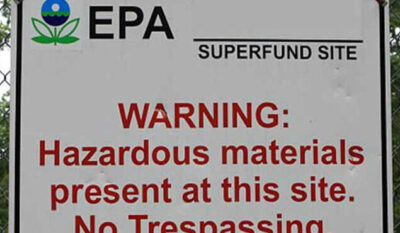Can sonography be a useful tool in evaluating changes due to disease progression or therapeutic interventions in multiple sclerosis (MS) patients? A new VA study suggested it could be.
White Women Most Likely to Have MS in United States
Multiple sclerosis affects diverse racial and ethnic groups in the United States, according to a recent study, which suggested that “racial, ethnic, and geographic differences in multiple sclerosis (MS) are important factors to assess when determining the disease burden and allocating health care resources.”
Black Veterans Are Significantly Less Likely to Complete Lung Cancer Screening
Despite the VHA being an equal-access healthcare system, Black veterans in a recent study had considerably lower rates of lung cancer screening (LCS) than white ones.
VA Study Suggests CVD Risk Might Be Modifiable in CKD/T2D
Is chronic kidney disease (CKD)-associated cardiovascular risk in Type 2 diabetes (T2D) modifiable? The answer is unclear, according to a recent study.
Transporting Pediatric Congenital Heart Disease Patients Not Always Best Course
Is it better to transport MHS pediatric patients with congenital heart disease to a high-volume center for care or treat them where they are, even if it is a rural area?
VA’s CVD Peer Health Coaching Intervention Improved Mental HRQoL
Cardiovascular disease (CVD) is the leading cause of death in the United States, but CVD risk factors remain suboptimally controlled in the VHA and elsewhere.
Educational, Peer Interventions Cut Risky Drinking Among Guardmembers
Risk drinking among reserve and active-duty military personnel is a threat not only to the health of the individuals, but also to their readiness if and when they are called to action.
Unexpected Brain Connectivity Changes Found in Fighter Pilots
A new international study is raising concerns about neurologic effects on U.S. airborne warfighters and Space Force guardians alike.
Legislators Worried About Increased Pharmacy Errors With EHR Rollout
While the rollout of VA’s new electronic health record (EHR) has been paused indefinitely as the department works with the developer to address serious flaws in the system, legislators are worried about ongoing issues at the sites where the new EHR has already been introduced.
COVID Mortality Rates Higher for Older Veterans Hospitalized in the Community
Veterans 65 and older with COVID-19 had lower survival rates when cared for in community hospitals than in VHA facilities. Contributing to the higher mortality rates, according to a recent study, is that so many older, rural veterans were treated by necessity in nearby hospitals.
Survey Finds Greater Patient Satisfaction With Care From VA vs. Community
Patient satisfaction is higher with care received at VA hospitals than most community facilities, according to recent federal data which bolsters previous evidence of comparatively high-quality care provided by VHA facilities.
TCE Exposure Linked to Parkinson’s Disease In Servicemembers Stationed at Camp Lejeune, NC, from Mid-1970s-Mid-1980s
For veterans exposed to trichloroethylene (TCE) and other volatile organic compounds four decades ago, the risk of Parkinson’s disease is 70% higher than for veterans without those exposures, a new study suggests.
Anti-VEGF Injections Can Cause Adverse Events in Veterans With Diabetes
Diabetes patients who are treated with anti-vascular endothelial growth factor (VEGF) injections, the primary treatment for diabetic retinopathy, have a higher likelihood of experiencing adverse events, such as acute myocardial infarction, cardiovascular disease or kidney disease, according to a recent study.
Seeing America slowly, was in a way, like eating slow food
My wife Pam and I have developed a habit of listening to audiobooks while traveling the American continent in our RV (TimBuckTwoBlog.com). A particular favorite for both of us was “The Oregon Trail: A New American Journey” by Rinker Buck. The book details Rinker and his brother, Nick, following the historic Oregon Trail in a covered wagon drawn by three mules in modern America. A recurrent theme in the text was the value of “seeing America slowly” from the buckboard seat of a covered wagon as everyday Americans whipped by on ribbons of asphalt at highway speed.
Rabiee Works to Increase Transplant Options for Veterans in Northeast
Each year, approximately 1,800 veterans are evaluated by VA for eligibility to receive an organ or bone marrow transplant, with approximately 450 veterans actually undergoing transplantation.
Older VA Patients More Difficult to Treat for Diffuse Large B-Cell Lymphoma
SILVER SPRING, MD – The Food and Drug Administration’s approval this spring of polatuzumab vedotin-piiq, marketed as Polivy by Genentech, Inc., for diffuse large B-cell lymphoma (DLBCL) has special significance for the VA because of its older population of patients....
Lymphoma Most Common Blood Cancer Diagnosed in Servicemembers
SAN ANTONIO – More than 700 active-duty U.S. servicemembers died between 2004 and 2015 of cancer, with lymphoma being the most common hematologic malignancy diagnosed, according to a new study. Researchers from the San Antonio Uniformed Service Health Consortium and...
Rural Residence Affects Clinical Trial Enrollment for Veterans With Blood Cancer
DURHAM, NC – Participation in clinical trials (CTs) remains low among cancer patients in general, but, in veterans, that issue is exacerbated because of the higher percentage of rural residents, according to a new study. “The barrier of rural residence is relevant to...
Retaliation Common Against ‘Whistleblowers’ Who Point Out VA Wrongdoing
Despite strong messaging over the last few years that VA would protect employees who come forward about wrongdoing in the workplace, the percentage of whistleblowers who experience retaliation from co-workers is growing.
Survival Rates Trend Lower in Non-Hispanic Black Patients With Uterine Cancer
Disparities in survival exist between non-Hispanic Black and non-Hispanic white patients with uterine cancer. A new study from military researchers sought to determine why.
High Inhaled Corticosteroid Doses Don’t Appear to Increase Pneumonia Risk
While inhaled corticosteroids (ICSs) combined with bronchodilators are known to improve outcomes in COPD, their use also can lead to certain adverse effects. That’s one reason a consensus on the optimal ICS dosing regimen has not been reached, according to a new study.
Which T2D Drug Class Prevents CVD Best in Patients Without Previous Disease?
In 2020, in its annual revision of the Standards of Medical Care in Diabetes, the American Diabetes Association (ADA) made some significant changes in recommendations.
VA Initiative Reduced Staff Burn Out, Controlled HAIs During Pandemic
When the last Ebola epidemic in South Africa threatened to reach pandemic proportions, multidisciplinary staff at VA North Texas Health Care System (VANTHCS) formed the Serious Infectious Threat Response Initiative (SITRI).
OIG Calls for Update of 2008 VA Mental Health Services Handbook
VA’s mental health services handbook is almost a decade out of date, making consistent care more difficult to achieve and possibly putting veterans’ safety at risk, according to a report by the VA Office of the Inspector General (OIG).
VA Renegotiates EHR Contract With Oracle, Seeking More Developer Accountability
VA has renegotiated its $10 billion contract with Oracle, the developer of its troubled new electronic health record (EHR) system, which is currently in use at only five sites across the VA healthcare system.
Early Surgical Intervention, Blood Product Use in Battlefield Casualties
In planning and preparing for the future possibility of large-scale combat operations, military medicine might have to decide which wounded warriors can have delayed evacuations. One issue is the need for blood products.
Repository Offers Clues About Young Adult Classical HL
Immune abnormalities persist in young adult classical Hodgkin lymphoma (YAcHL) patients long after cure. Yet, new research presented at the most recent Annual ASH Meeting and Exposition in New Orleans pointed out the difficulties in assessing whether those issues existed prior to diagnosis.
ICI Cancer Therapy, Chemo Linked to Similar VTE Rates
Is immune checkpoint inhibitor (ICI) therapy associated with higher rate of venous thromboembolism (VTE) compared with cytotoxic chemotherapy (chemo) in patients with comparable cancer type, staging and comorbidities?
New Consensus Statement on Thyroid Eye Disease Focuses on the Latest Therapies and the Need for Multidisciplinary Care
Also known as Graves’ ophthalmopathy or Graves’ orbitopathy, thyroid eye disease (TED) affects up to a third of people with autoimmune thyroid disease, most commonly hyperthyroidism due to Grave’s disease.
Adherence to Diabetes Medications Remained High During COVID-19 Pandemic
During the COVID-19 pandemic, high-risk diabetes patients who were treated in the VA Healthcare System adhered to their diabetes medication regimens and maintained high primary care use, even though virtual care replaced in-person care, according to a recent study.



